A veteran deals with the consequences of war with a powerful and personal photo book.
Like an arrow, this small book hits its target fast and hard, writes photo guru Stephen Mayes about “10 Years After Iraq.” Between the dark green hardcovers, 27 images shot by William Chan on disposable cameras during his tour of duty in Iraq flow together seamlessly with 76 words, like a visual poem. “10 Years After Iraq” isn’t a book you can just flip through. It’s a deep commentary that’s also filled with contradictions, an apology but also a yearning for Chan’s days as a soldier. Perhaps because over 10 years after being deployed, Chan is finally finding peace in these nuances. And with this book, he is ready to discuss them. He spoke with R&K at our offices in Brooklyn.
Roads & Kingdoms: Tell us about being deployed in Iraq.
William Chan: I landed in Kuwait in 2002 and was part of the invasion in March of 2003. For a really long time, I thought I had been part of something great. Maybe I was romanticizing war and what it meant to be American. I’m an immigrant, I might not look like an American per say, not the textbook version at least, but I love this country and I thought serving it was an honorable thing to do. I was hoping that this war would free Iraq from its dictator. I bought into it all. And not necessarily the nuances, I bought into the Twitter version of why we went to war. For a long time I thought the end would justify the means. That it would be worth it if we left that country in a much better place than we found it. But being who we are as a country, that didn’t happen.
R&K: When did your opinion about the war start to change?
Chan: Five or six year after the war started, I knew that we had been wrong. We didn’t make any real effort to think about the people in the region. It was our initiative, our self-interest, our politics. They were always “the others.” I think if we ever have a war with Canada one day, it will be a really considerate war. Or with the UK. It would be the most considerate war possible, because we would take every measure to think about these people. We would consider them our friends. I don’t think we ever thought that the Iraqis were our friends. And yet they didn’t provoke us into war. It’s not like they attacked us. So for us to unilaterally go to that country and attack them, we really had to have good reasons and intentions. I don’t think they were good reasons, and I’m pretty sure we didn’t have good intentions. Once I realized that as a citizen, I thought about how I took part in this too. So I decided to use myself as the story and started working on this book about two years ago.
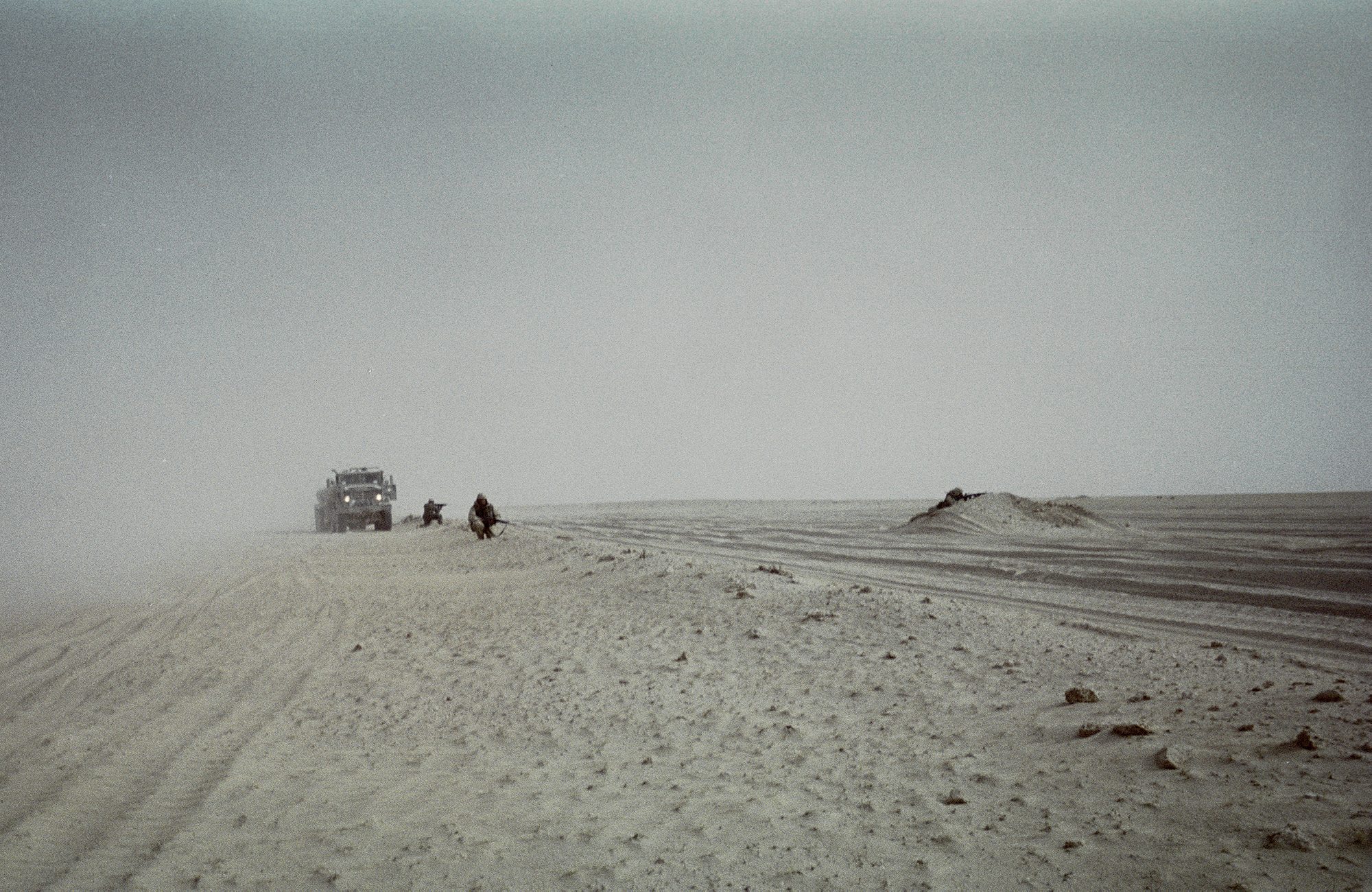
R&K: How would you describe “10 Years After Iraq”?
Chan: It’s a really straightforward book and a really straightforward statement: I made a mistake. I was part of a mistake. So what do we do about it? I think as a country we always try to repress those things that we’re bad at. We want to forget about the riots and the fights, all those mistakes that we have made, and that’s how Donald Trump gets out there. We forget how heavy handed we were in the bad parts of history. So I hope to start this conversation, especially in the military sense. A lot of my dear friends are still in the military or they identify very strongly with what they did during the war. What I hope is that you can both be proud of your service and yet be critical of the actions. These are nuances that I have found very difficult to balance for a long time. I love my uniform. I love my country. And yet I think I’m no longer serving my country if I’m not honest with it, if I don’t take accountability.
R&K: What do your friends who are still in the military think about the book?
Chan: A lot of them don’t appreciate it. I think many people still think going to Iraq was the right thing to do. That it kept our country safe. And I think it did, but you could bomb every country in the world and just by process of elimination you would never get attacked, if you just wiped out every single person on Earth I guess. A lot of people come from a very one-sided view. We remember 9/11. It gave us the moral justification to do a lot of things, it still does today. A lot of my friends still feel that way. It’s like in San Bernardino right now: 14 people dead, so we are going to go crush ISIS. Great, I’m all for crushing ISIS, but what then? Killing people is much easier than knowing what to do afterwards. Do we understand the complexity? The big power struggle? If we don’t understand that before we go in, then we’ll just hate the people who take over, and there will be another war, and it will go on and on. ISIS give us a great justification to go to war. You can’t get more crazy than those guys. So, we have this opportunity to write history. Can we write it with consideration on the international level? Or are we going to impose our view on the world, just as we have done in the last 50 years? I want to be a part of that conversation.
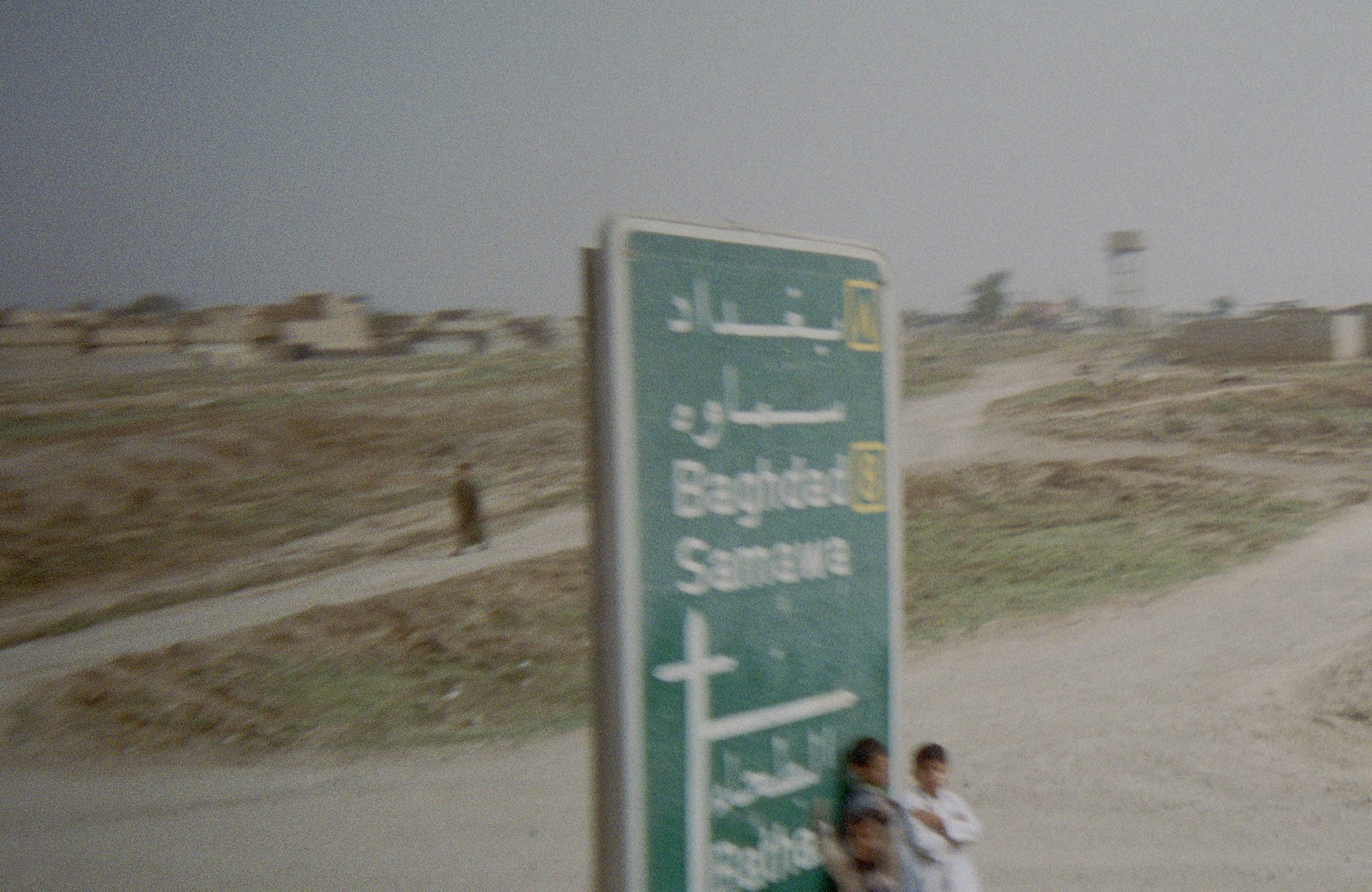
R&K: You mentioned being an immigrant, when did you move to the United States?
Chan: It was around 1983, I was a kid. I came with my family from Hong Kong when it was still a British colony. They wanted to leave before it went back to China’s control. Typical immigrant story. It was good, we grew up like everybody else: baseball, basketball, college.
R&K: And then you joined the army.
Chan: Yes I joined the Army reserve in 1999, I was around 24. I had graduated from college and was helping my parents in their mom-and-pop store and I just decided to go into the Army reserve. It wasn’t that big of a commitment. But after 9/11, the reserve became a much more integrated portion of the army, and basically everybody served. Then I was deployed. We all thought we would be going to Afghanistan, but it turned out to be Iraq.
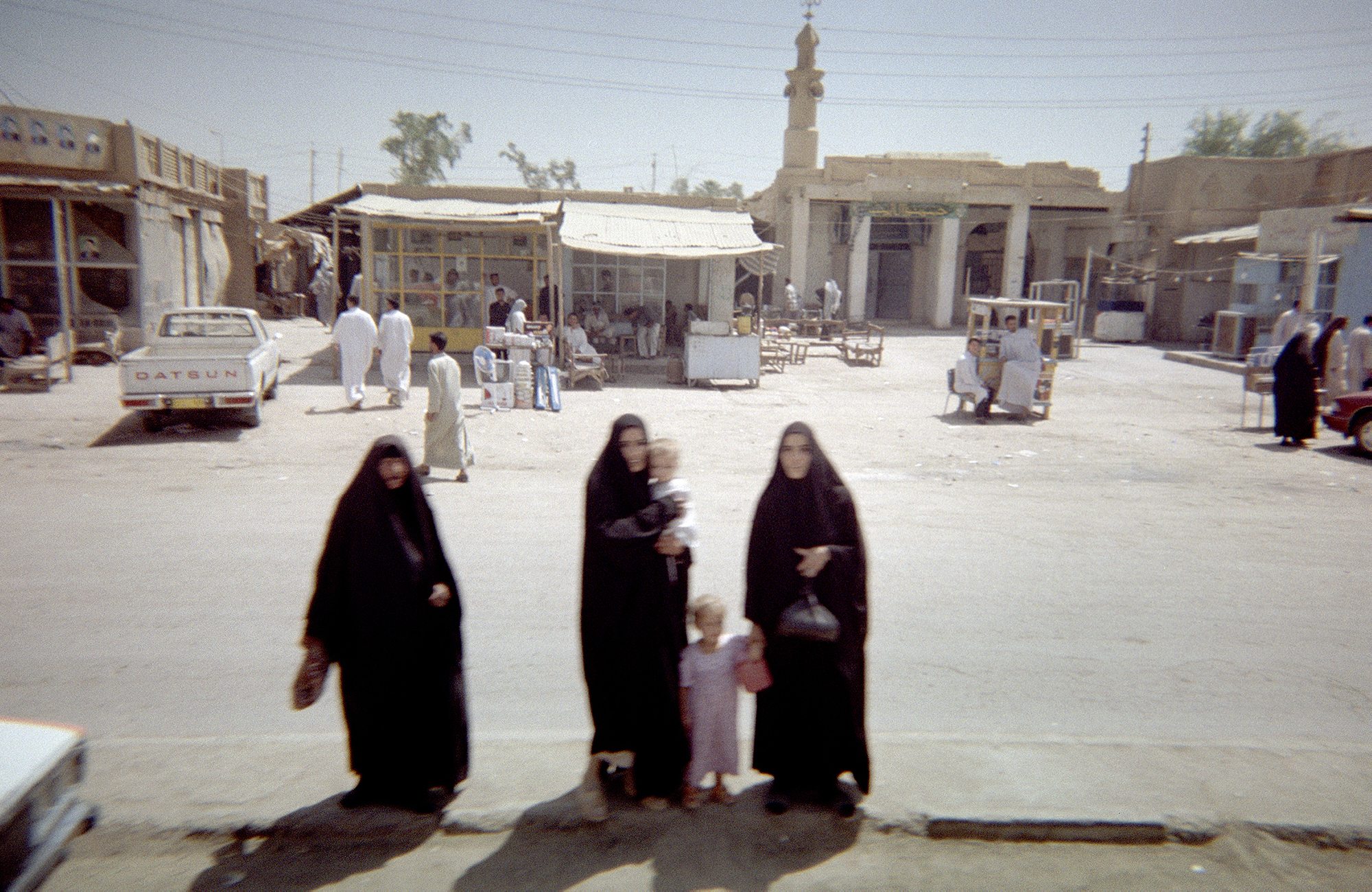
R&K: How did you feel about the war at the time? About being deployed?
Chan: If anything, it was probably the best time of my life. It’s definitely the deepest time of my life. And obviously the context of this beautifulness is war. But I mean, to be with people 24/7, the bond is just incredible. To be with people who would literally die for you. I would never feel that again. Aside from maybe your family, your parents might die for you, but I mean, there, on any given moment, I think anyone would have died for one another. And I think I struggled with that afterwards, I came back and I didn’t understand why people didn’t give more, why people didn’t fight more for anything.
R&K: Did you consider yourself a photographer back then?
Chan: No. It was strictly a tourism type of thing. There was no intent other than just to document the experience for myself. When I look at the photos, I see a lot of sadness. I didn’t necessarily feel that way at the time. I think that like most people I served with, my goal was just to come back alive. That’s the sadness. We were there just so we could come back alive. And it’s got nothing to do with Iraq. Yes, in passing we would try to achieve good things for the country, but every time we went out, we just focused on making it back.
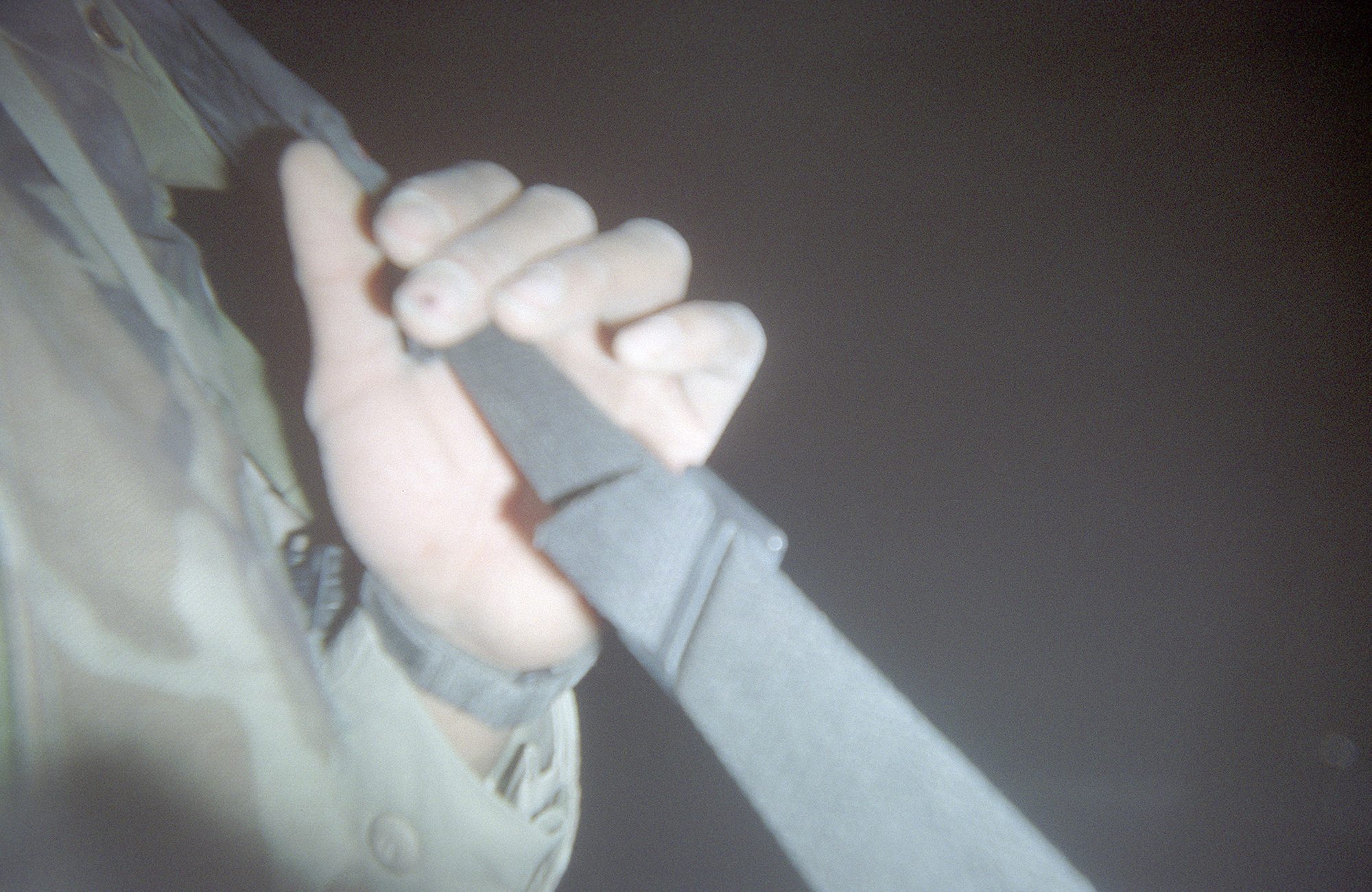
R&K: How long were you in Iraq for?
Chan: We were deployed to Kuwait on Thanksgiving and stayed something like eight or nine months in theater, but in Iraq itself probably like four months. The first half of the tour was prepping and then it was the invasion. We thought this would be a much shorter thing at the time.
R&K: And then, that was it. You were back in the United States.
Chan: Yes. I came back and did different things in reserve until 2011. I became a drill sergeant, which was the last thing people expected from me, but I always had the desire to keep pushing myself. At that point I was really into identity, and I didn’t see any Asian drill sergeants so I thought I would try to do it. Once you go to war, whether you kill someone or not, it activates something in you. I read on this later on, but I didn’t realize how many people were in the same boat. It’s hard to come back for many reasons. One of them is that you become someone else out there. I don’t know, it’s like drugs. If you’ve ever done hard drugs, you will know how that feels for the rest of your life, and you’ll always yearn for it. When you come back here, the structure, the social contracts… I mean if you can reconcile killing someone over there, what can stop you here? The police? I’ll tell you I don’t get scared at all for anything. Maybe except for my son.
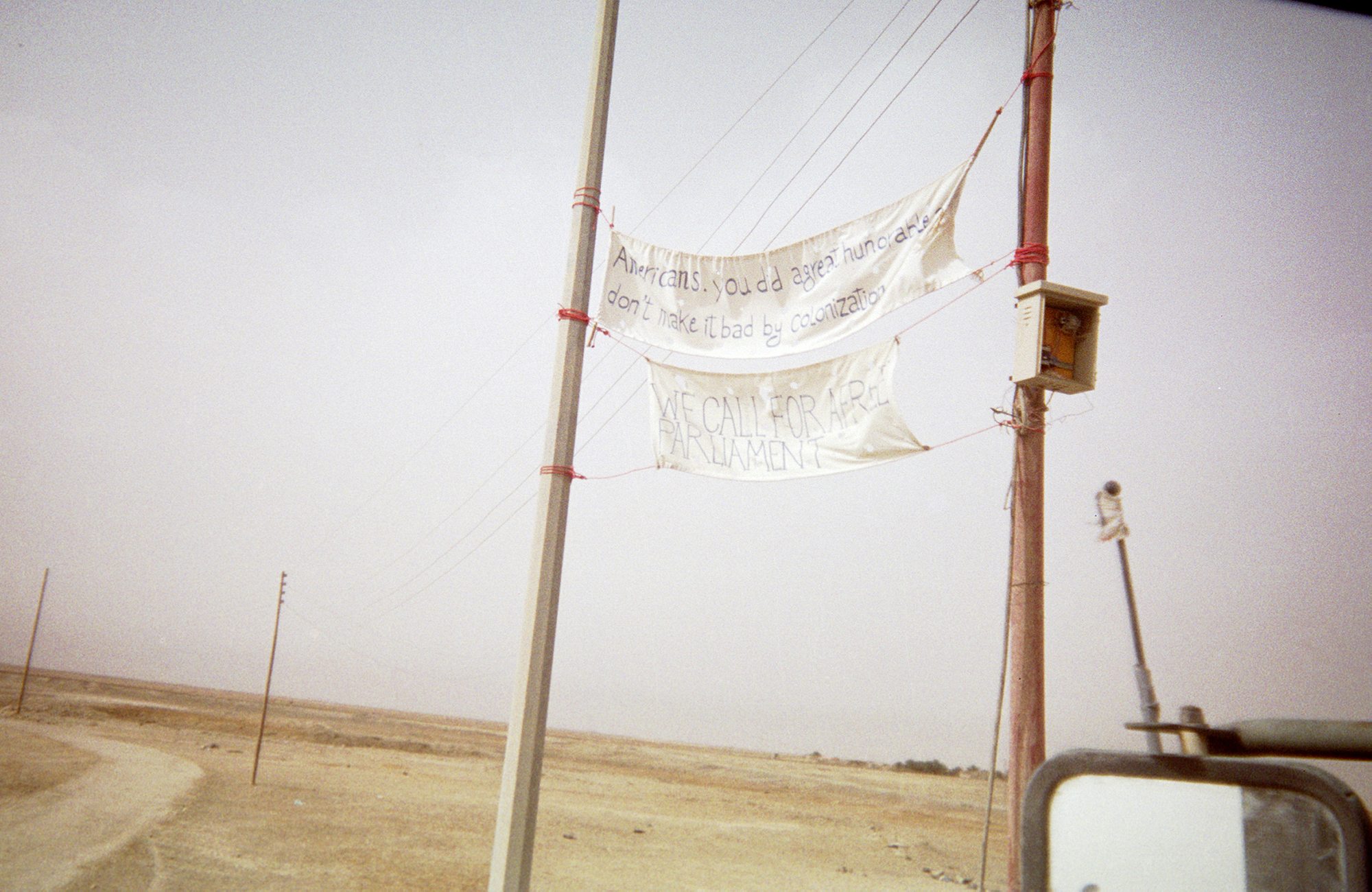
R&K: Your son plays a big role in your book, can you talk about that?
Chan: He plays a big role. I don’t want to get too personal but I probably wouldn’t be here if it weren’t for him. Being a father is the only thing that I know 100% to be right. I just know it. Like when you meet the right person, you just know it, you can’t explain it. I know that about my son. And I will need to do everything I can to be a better person for him. Politics shift, relationships change, friends come and go, even partners come and go, but I will always be his father. And his memory of me will always be there. If I don’t try to be a better father, all I’m doing is causing him pain that I can’t resolve in my lifetime. It is totally for him, it’s about the future.
R&K: How did you cope with coming back home?
Chan: It’s not always about war, a lot of people have issues even before they join the military. They’re running away from something, they’re looking for something, and the war and experience, the pressure, only triggers it more. I think that was the case for me. If I had been in a better place, I don’t think the war would have affected me as much as it did. Many veterans have been to really dark places. The book is also about that. On the cover I put the number for the Veterans crisis helpline. I was so lost for so long. But I’ve had some really good people, some who I barely know, that have really supported me.
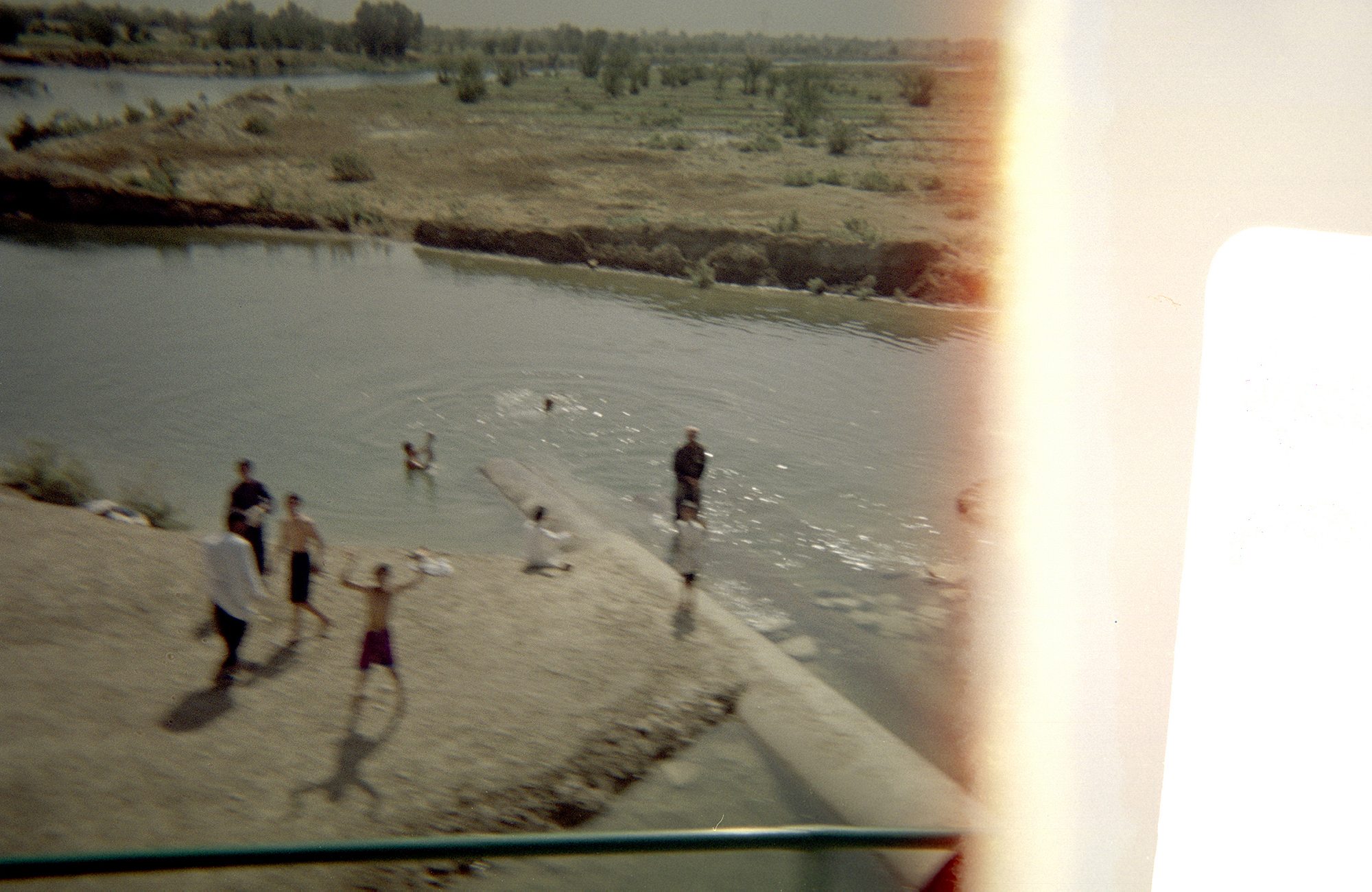
R&K: What would you say to a veteran looking at your book now?
Chan: Two things: if you are hurting, if you’re having issues, look for help. And this is really corny, but I think your country needs you to keep serving now more than ever. This is what I say to myself. If you’re willing to die for your country at one point, if you can give that much, then you need to keep giving. Not many people are willing to do that, at least on this very concrete level. If you’re a veteran, find yourself. A lot of people don’t know how to translate that part of their life into civilian life. So I say don’t translate it, just be that same person. Keep serving, whatever that might mean.
R&K: Was it therapeutic for you to make this book?
Chan: Very much so. It started out as work I made for myself, and then I adjusted it in a way that’s beneficial to an audience. It took a long time, probably a year, to get to that point. I don’t look at this work strictly as autobiographical. The intention has always been for the audience to connect. And it’s very straightforward.
R&K: It’s straightforward but also very complex.
Chan: It is very complex. It’s a complex book because I want the reader to ruminate and think about it a little bit longer. It’s not confrontational. I know a lot of people will miss the point in that sense because I’m not trying to hit you over the head with it, but I hope the few that by chance get to sit on it once or twice will feel it, and will feel the sincerity of it. Hopefully it starts a conversation. I hope I can really touch you, or cut you even. I hope I can do something that motivates the reader to do something, whatever that might be. If you reach out to a friend who might be in trouble for example, that’s good. If it makes you talk about political issues, that’s good. There is so much apathy. Breaking that apathy is probably the biggest challenge. We have it really good here, and the people with the most need to be the ones speaking for those who have the least.
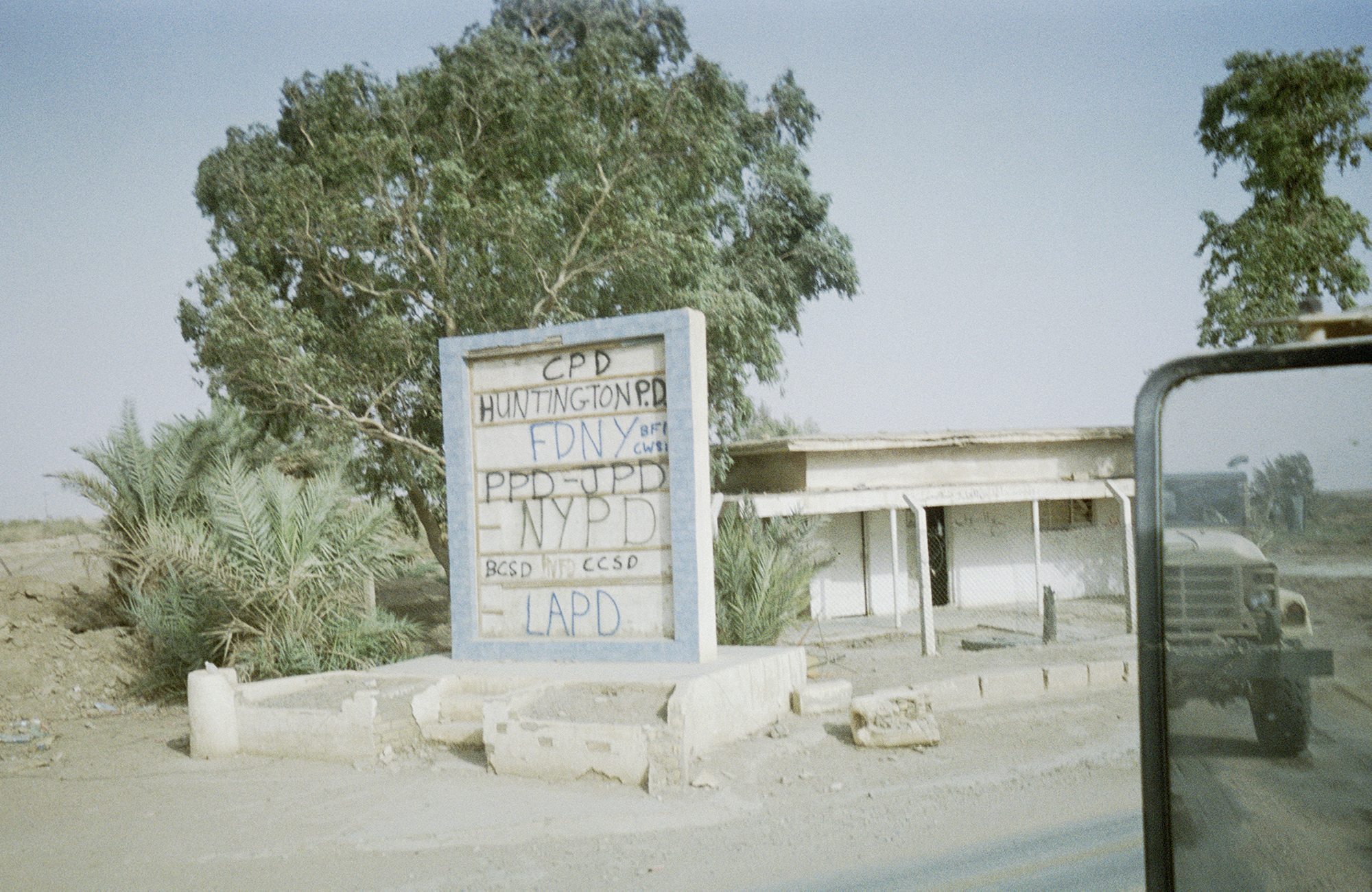
R&K: You’re running a Kickstarter campaign to raise money for RISC, can you talk about what that is?
Chan: Are you familiar with the film Restrepo? When I saw that film, I was in the middle of doing my undergrad and I was shooting a lot of commercial work and making no money and thought I wanted to quit. When I saw Restrepo, it reminded me of the power of art. These two guys had never served in the military, and yet through embedding and through empathy and their intelligence, they were able to convey to a mainstream audience exactly how I saw the war. People always ask: did you kill somebody? How was it there? And I just say: watch Restrepo. It was very powerful for me to see that these two visual artists totally got it. After that, I felt really compelled to continue. Unfortunately Tim Hetherington passed away, but I contacted Sebastian Junger and found out about RISC. They teach journalists how to take care of themselves should they get hurt, and they do it for free. It’s hard to sustain these types of initiatives so I thought I’d help by raising a bit of money for them.
R&K: You have such a passion for journalism, yet you don’t work in that field yourself.
Chan: The financial models for journalism are really tough. There’s a lot of freelancing. I’m not a journalist but I think that journalism is so important, whatever it is, whatever category of journalism that you work in. As a consumer, I don’t get information if people don’t put themselves out there intellectually or physically. And if you’re great at writing about politics from your office, that’s just as valuable as someone who’s in theater, taking pictures. I think as a citizen, I want to support that. Like everyone else, I complain about many things. Social security, healthcare, why is Donald Trump leading the polls? Everybody is just dumbfounded, but very few people go beyond just being dumbfounded. Critiquing myself, making this book, was me thinking: how do I put it out there to have these conversations? If I’m going to speak about it, I need to continue informing myself about these things.
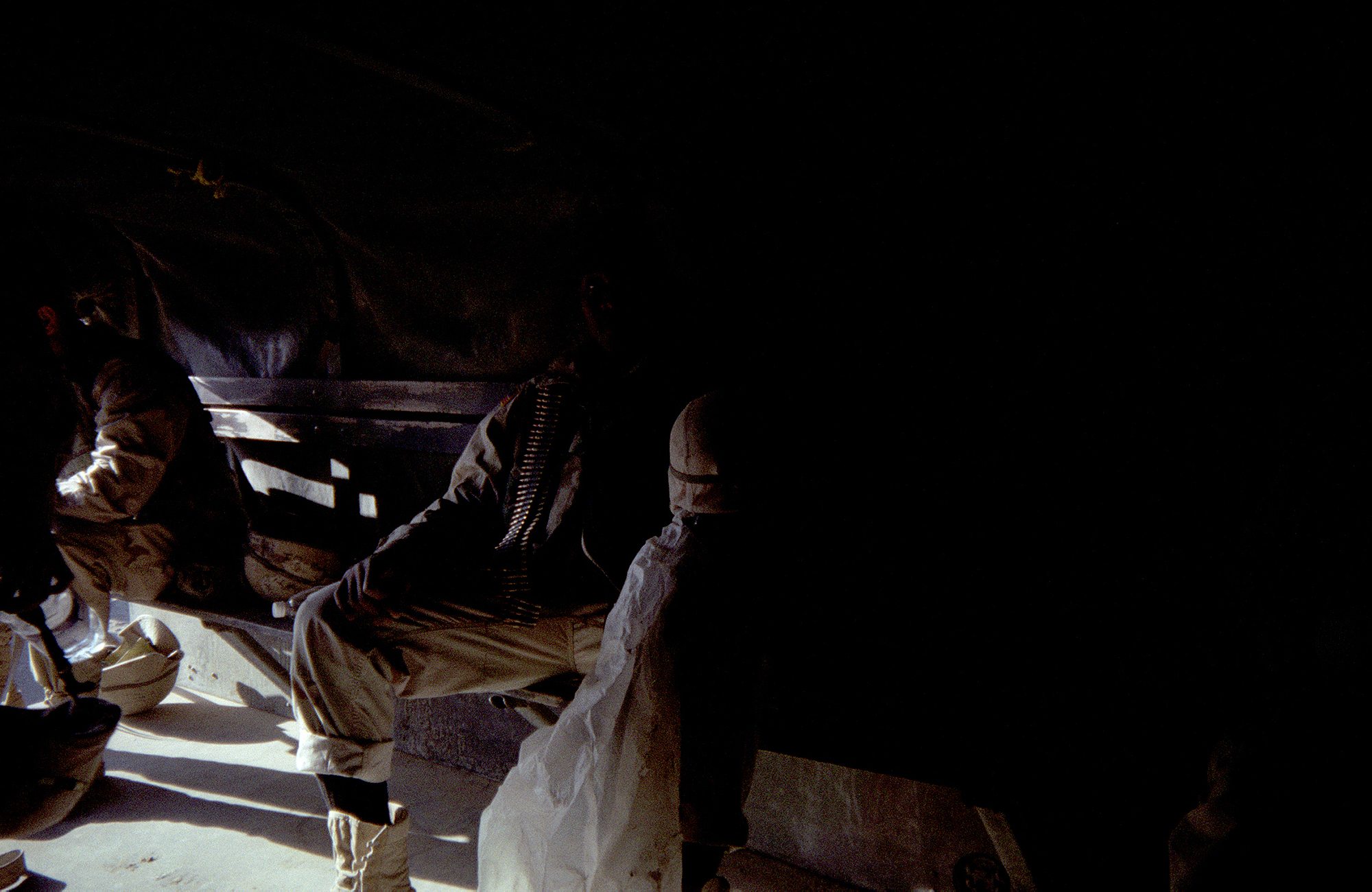
You can purchase “10 Years After Iraq” on Kickstarter. William Chan is donating the first $5000 of his campaign to help RISC train and equip more freelance conflict journalists in first aid.